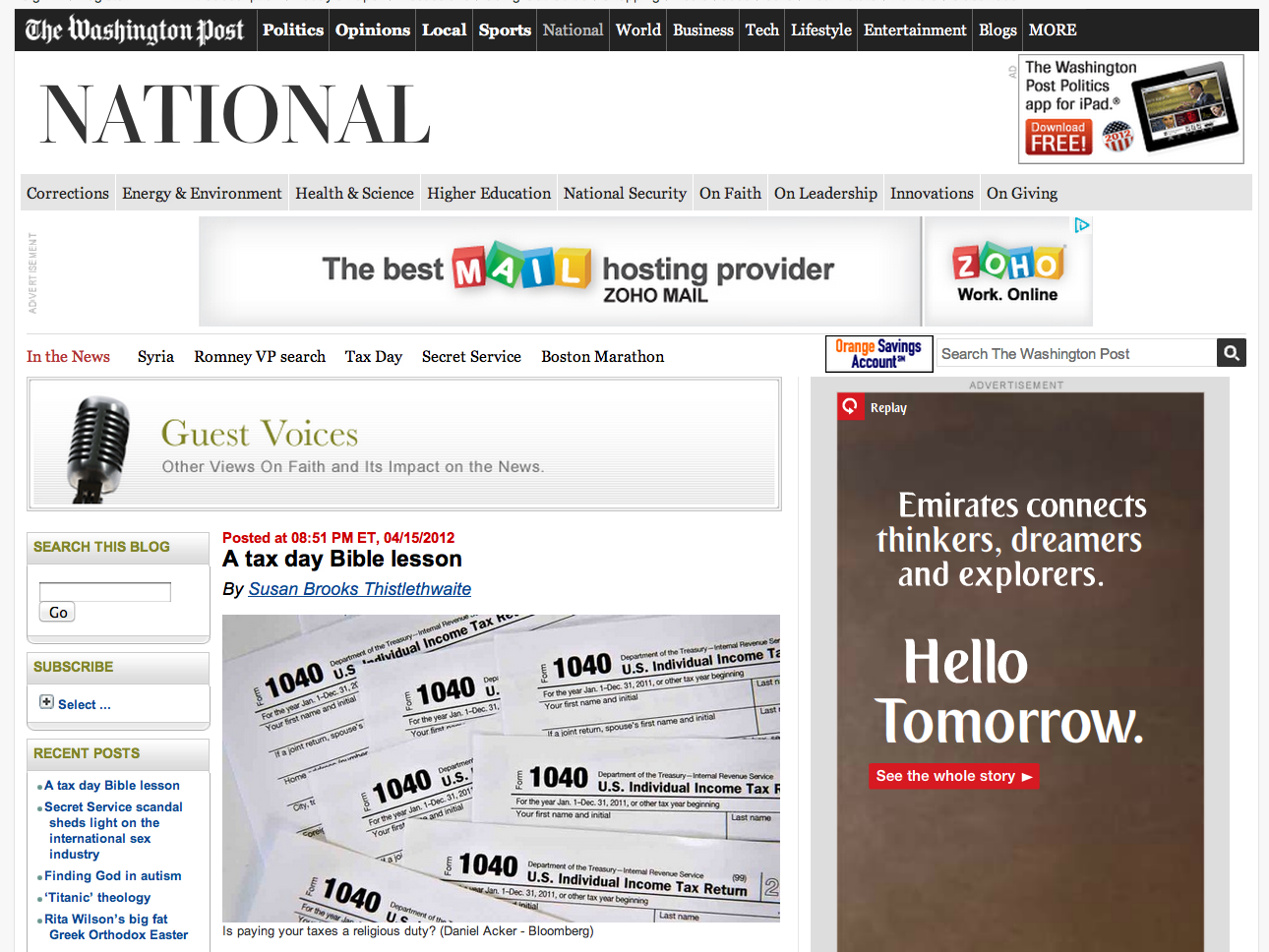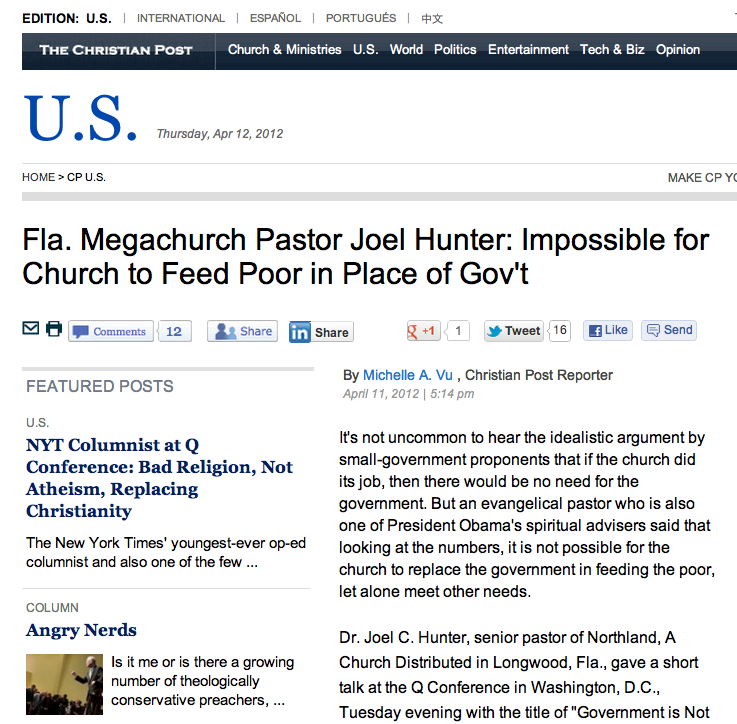Rev. David Uth of First Baptist Orlando is taking the lead among evangelical ministers advocating for immigration reform as faith-based organizations ramp up for the debate in Congress scheduled for next week.
The endorsement of evangelicals brings near-unanimity among religious organizations lining up in support of immigration reform, said Sister Simone Campbell, whose Nuns on the Bus tour came through Central Florida this week in support of immigrants seeking citizenship.
"Once the evangelicals came on, it was huge," Campbell said.
Uth, pastor of the 15,000-member First Baptist, is featured in a series of radio ads being broadcast for 92 days in 13 states, including Florida. The ads are sponsored by the Evangelical Immigration Table, a group that includes Lynne Hybels, co-founder of the nondenominational megachurch Willow Creek Church in Illinois.
Uth said his interest in meaningful immigration reform comes from his reading of the Scripture and his personal experience with immigrants seeking citizenship.
"All people matter to God," said Uth, 56. "Our church is a very compassionate church, and it's only natural we would get involved in this."
Pastor Joel Hunter of Longwood's Northland, A Church Distributed said he has seen a transformation take place within the National Association of Evangelicals, which represents 30 million evangelical Christians. Even four years ago, the organization was divided over the issue of immigration.
But that changed with the formation of the Evangelical Immigration Table of leaders, which Uth represents.
There were two main reasons behind the change, Hunter said. One was that just about every evangelical pastor has heard the stories and sorrows of church members seeking citizenship or facing the fear of deportation. The other is the Christian command to love thy neighbor.
"All of us realize this broken system hurts all of us, not just the folks asking for a path to legalization," Hunter said.
There is also a commonality among faiths that emphasizes assisting the less fortunate that has brought about this unusual unity of religions, Hunter said.
"There's a synergy we have not seen in many, many issues," he said.
Along with the Catholics and evangelicals, immigration reform is being pushed by Protestants, Jews, Hindus and Muslims.
"I'm very pleased that all faiths can agree that as long as they are law-abiding, we must be compassionate, we must be welcoming, we must allow immigrants to come," said Atif Fareed, president of the American Muslim Community Centers based in Longwood.
Fareed arrived as an immigrant from India and become a citizen in 1979.
Rabbi David Kay is not far removed from his grandparents who immigrated from Poland and Russia.
American Jews have an affinity for immigrants because immigration is part of the Jewish story, he said. For much of history, they were treated as the strangers, the aliens.
"It's based on a biblical point of not oppressing the stranger, which our tradition recognizes as the resident alien," Kay said.
Uth said the Bible commands Christians to "welcome strangers" and "take care of the alien." But the current system is often dysfunctional, broken and inhumane, he said.
"When I see people abused or treated unfairly by a system that is broken, it's hard for me to look the other way," Uth said. "Here at First Baptist, we have people who are doing everything they can to become part of the system and are being hurt by the system."
Campbell brought her bus of 10 traveling nuns through Florida this the week with stops at the St. Margaret Mary Catholic Church in Winter Park and Hope Community Center in Apopka. The 15-state tour will end in San Francisco on June 18.
The bus made a special stop in Tallahassee for a visit to U.S. Sen. Marco Rubio's office. Rubio is one of the sponsors of the Senate bill that will be debated next week. Campbell said they told Rubio's staff they appreciated his leadership and hoped he would remain steadfast.
"We are encouraging him to be a missionary for his bill," Campbell said.
With faith leaders solidly on one side, the only thing that can derail a clear path to citizenship is fear, she said.
"Fear is driving us apart. That is not good for our economy. It's not good for who we are as a nation," Campbell said. "Immigration is the glory of our past and the hope for our future."
jkunerth@tribune.com or 407-420-5392
By Jeff Kunerth, Orlando Sentinel.
SOURCE URL: http://www.orlandosentinel.com/features/os-first-baptist-immigration-reform-20130605,0,7313778.story

 President Barack Obama gave immigration reform advocates a simple message Wednesday: Don’t let Obamacare get you down.
President Barack Obama gave immigration reform advocates a simple message Wednesday: Don’t let Obamacare get you down.


